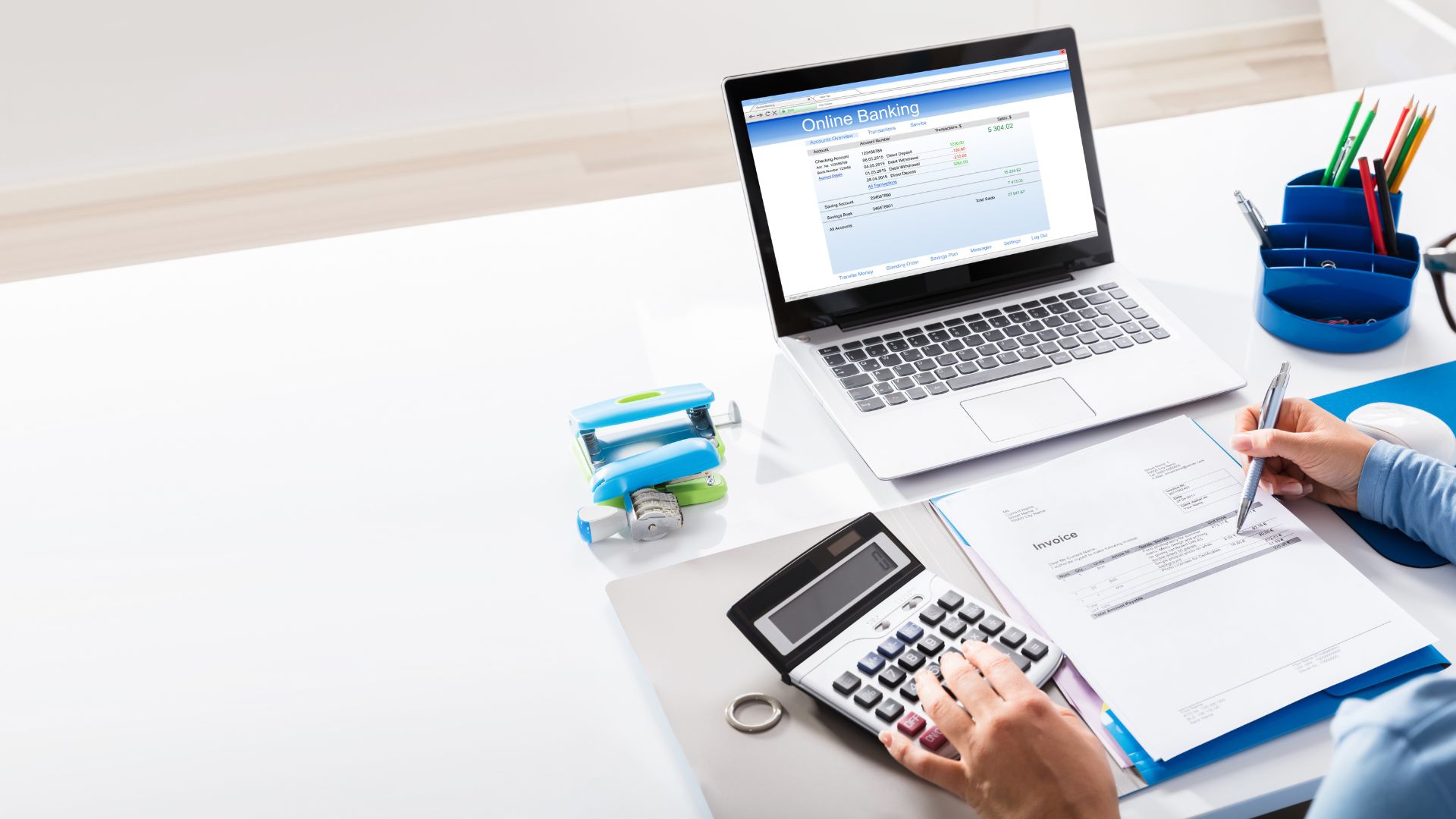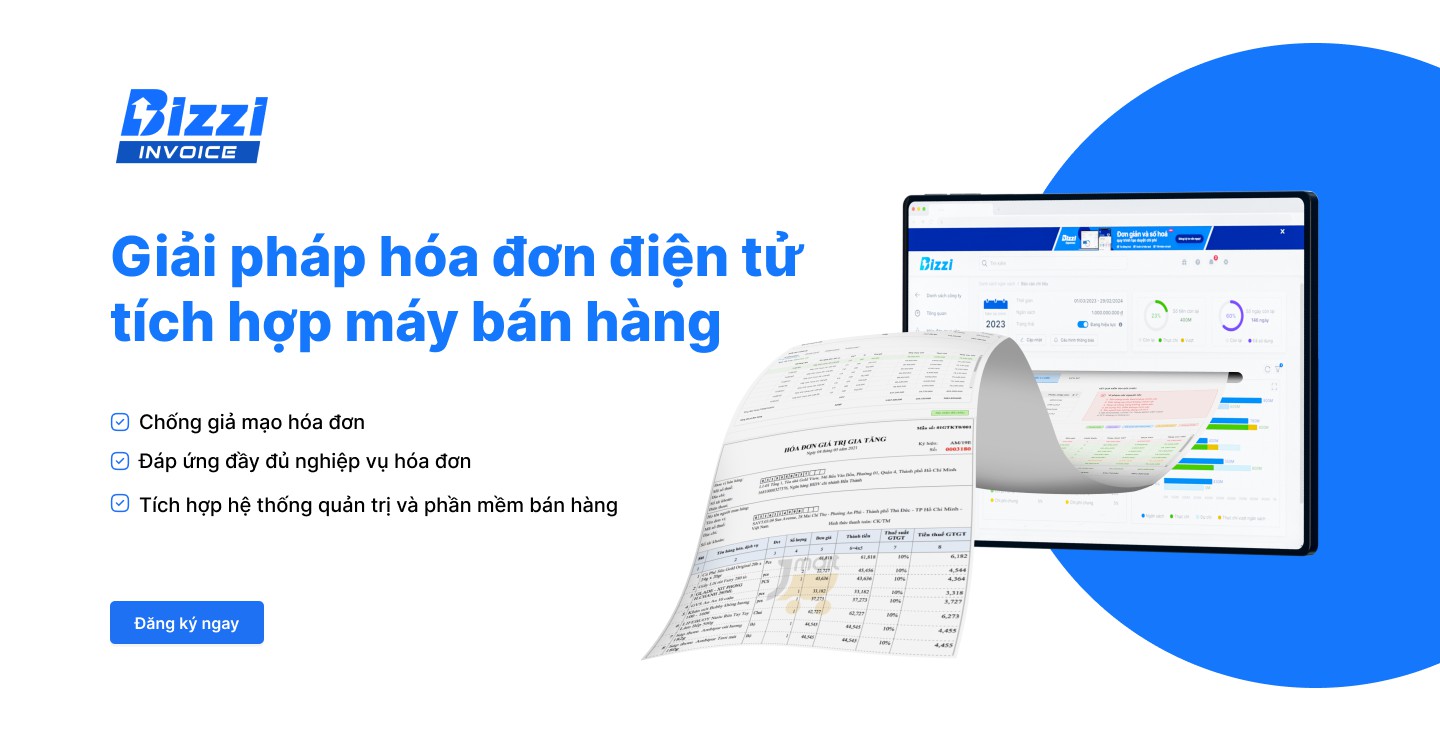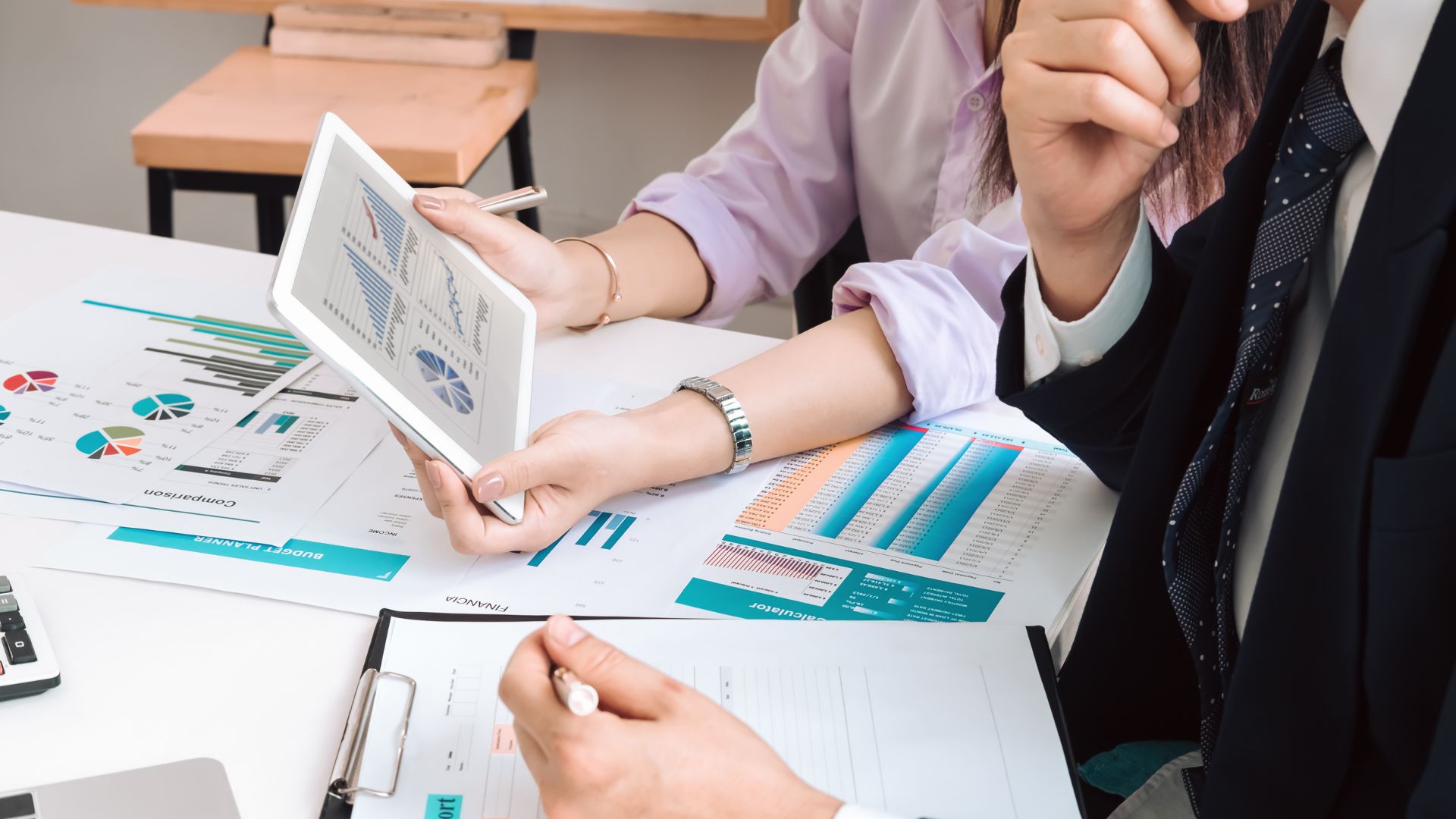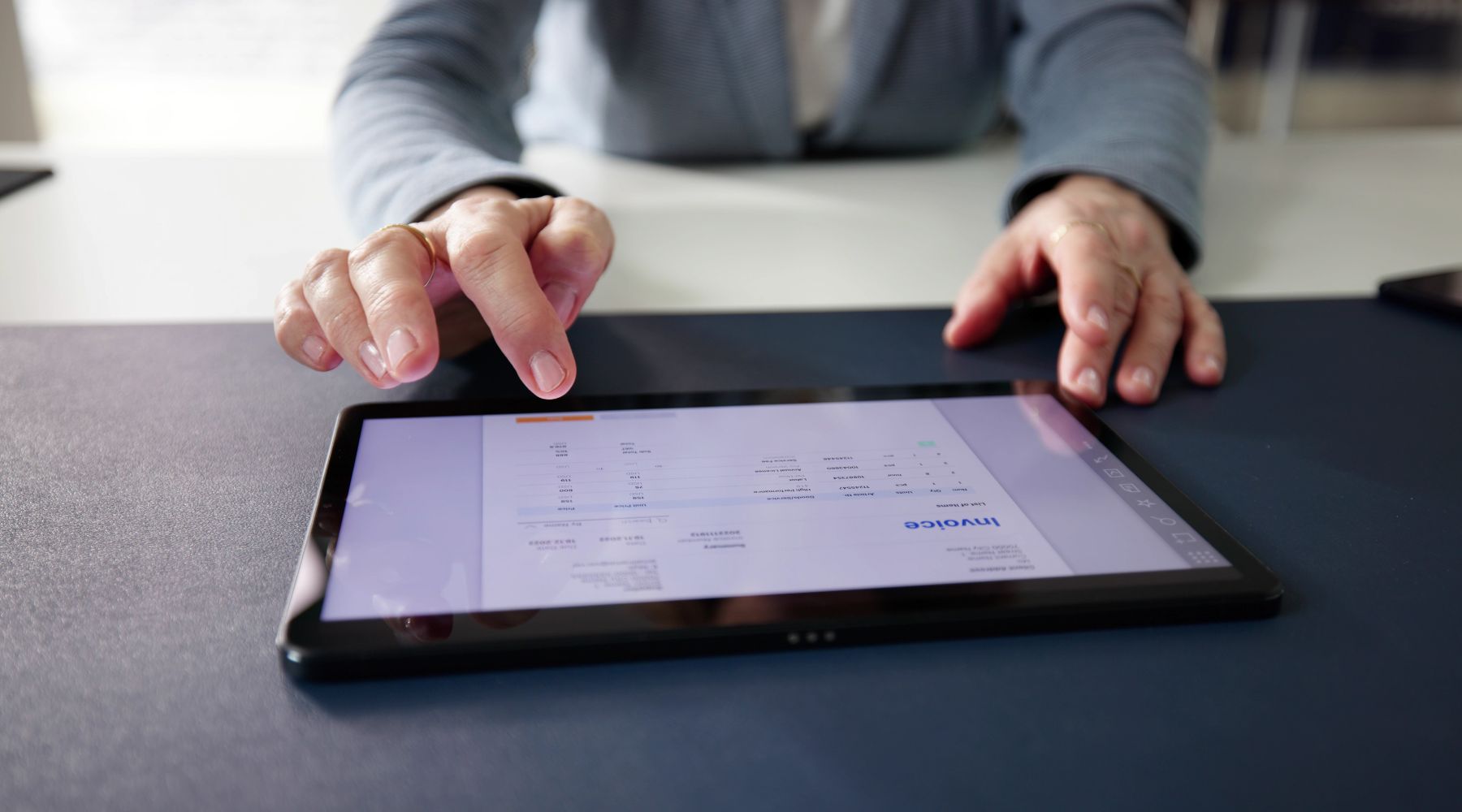In a competitive business environment, the use of invoices to legitimize expenses is a common need. However, without a clear understanding of legal regulations, many businesses may unintentionally or intentionally buy and sell fake invoices - an act that is strictly prohibited and severely punished.
So How are invoices processed?? What is the penalty for buying fake invoices?? The following article will help business owners and accountants understand the legal framework, common situations and measures to avoid risks related to illegal invoices.
1. What is an invoice? Overview of invoice trading
An invoice is a document issued by a seller to record information about the sale of goods and provision of services in accordance with the provisions of law. This is not only the basis for recording revenue and expenses, but also the basis for businesses to declare and deduct value added tax (VAT) and determine income subject to corporate income tax (CIT).
However, nowadays many businesses have behavior purchase and sale invoices to legalize goods of unknown origin or increase input costs to reduce tax liabilityThis is a violation of the law and carries many serious legal risks:
- How are invoices processed?: According to Article 203 of the 2015 Penal Code (amended in 2017), the act of illegally buying and selling invoices can be criminally prosecuted with a fine of up to 500 million VND or imprisonment from 6 months to 5 years depending on the severity of the violation.
- Penalty for buying fake invoicesEnterprises using fake invoices to declare taxes will be administratively fined from 20 million to 100 million VND (according to Decree 125/2020/ND-CP), and will be subject to tax arrears, late payment interest, and the case may be transferred to the investigation agency if there are signs of crime.
- How to be punished for buying fake invoices: Not only the seller, but also the buyer of the fake invoice must bear the corresponding legal responsibility. In addition to being fined, the enterprise can also have its business operations suspended, be placed on high-risk tax management and lose its reputation in commercial transactions.
Using invoices incorrectly directly affects the legality and financial security of the business. General Department of Taxation It has been repeatedly affirmed that this situation causes budget losses, creates an unhealthy competitive environment and destroys confidence in the national financial system.

2. What is the act of buying, selling or using illegal invoices?
The act of buying, selling or using illegal invoices is a violation of regulations on invoices, distorting accounting information, causing loss to the state budget and is strictly handled according to the law. According to Article 23 of Circular 39/2014/TT-BTC, these acts include many forms of intentional fraud in the creation, sale, purchase or use of invoices. Enterprises need to clearly identify these acts to avoid violations and severe penalties.
Some acts considered illegal use of invoices include:
- Creating fake invoices: Issuing invoices but there is no actual transaction of buying and selling goods or services.
- Selling or giving away invoices without content for the buyer to fill in the information himself, using for the wrong purpose.
- Sell or give pre-made invoices to the buyer to legalize expenses, declare taxes or withdraw budget funds illegally.
- Invoice with incorrect content between copies, missing required information or recording incorrect information.
- Use the invoice of this transaction to validate another transaction.
- Using invoices with false content, in part or in whole.
- Using invoices of other organizations/individuals to sell goods without declaring taxes or committing tax fraud.
- Purchase invoices with full information but no actual transaction attached.
- Buying and selling fake invoices, expired invoices, and invoices that are not yet valid.
- Using invoices with differences in the value of goods and services between copies.
- Use of invoices that are deemed illegal by tax authorities or competent authorities.
The above actions not only affect financial transparency but also pose high legal risks to businesses. If violated, businesses will face the question: How are invoices processed? or How to be fined for buying fake invoices?Depending on the severity of the violation, this act can be administratively fined from several million to hundreds of millions of dong, or prosecuted for criminal liability with a sentence of up to 7 years in prison according to the provisions of the Penal Code.

3. How is the act of buying and selling invoices handled?
The act of buying and selling fake invoices or illegal invoices is a serious violation of the law in the field of tax and accounting. Depending on the level and consequences caused, violators may be subject to administrative penalty or criminal prosecution according to current regulations.
A. Administrative sanctions
According to Decree 125/2020/ND-CP (amended and supplemented by Decree 102/2021/ND-CP), penalties for buying and selling fake invoices are divided into several levels as follows:
- Give away, sell unissued printed invoices or customer printed invoices for other organizations/individuals: Fine from 15 million to 45 million VND.
- Giving and selling invoices illegally (not in the above cases): Fine from 20 million to 50 million VND.
- Use of illegal invoices: Penalty from 20 million to 50 million VND, and at the same time force cancel used invoice.
- Tax evasion, tax fraud due to using fake invoices: May be subject to fines from 1 to 3 times the amount of tax evaded and forced to pay full tax arrears, late payment fees, and adjust input VAT (if any).
- In case the buyer proves that the fault lies with the seller and have fully declared the accounting: Penalty 20% Tax amount under-declared or over-refunded.
Remedial measures include: forced to cancel invoices and pay back tax evasion, and return illegal profits from violations.
B. Criminal proceedings
When the act of buying and selling fake invoices causes serious consequences or has criminal elements, the violator may be prosecuted under the 2015 Penal Code (amended and supplemented in 2017):
- Crime of tax evasion (Article 200 of the Penal Code):
- Tax evasion from 100 million VND or more or has been administratively sanctioned before: May be subject to fine from 100 million to 4.5 billion dong or imprisonment from 3 months to 7 years, depending on the severity of the violation.
- Additional penalties: Prohibition from practicing a profession or holding any office, or confiscation of assets from 1 to 5 years.
- Crime of printing, issuing, buying and selling illegal invoices and documents (Article 203 of the Penal Code):
- Print/publish/sell from 10 to less than 30 invoices with recorded content or profit from 30 million VND or more: Penalty from 50 million to 200 million VND, non-custodial reform up to 3 years or imprisonment from 6 months to 3 years.
- Serious cases such as organized, professional, profiting from 100 million VND or more or causing great damage to the budget: Imprisonment from 1 to 5 years.
- For commercial legal entities: May be subject to fines from 300 million to 10 billion VND, bag temporary or permanent suspension of operations, along with additional penalties such as Prohibition of capital mobilization, prohibition of related business lines.
Note for businesses: Buying and selling fake invoices not only affects reputation and finances but can also expose businesses to serious legal risks. Comply with regulations and choose a reputable, transparent e-invoice solution to ensure safe and effective accounting and tax operations.
Explore solutions Bizzi smart e-invoice – helps your business control costs, manage invoices closely and comply with the law.

4. Instructions for handling when businesses have illegal invoices
In the process of controlling costs and fulfilling tax obligations, the use of legal invoices is a mandatory requirement. According to regulations, only actual costs incurred for production and business activities, with full legal invoices and documents, can be counted as deductible expenses when determining taxable income. So if a business accidentally or intentionally uses illegal invoices, how can it be handled to minimize damage and risks?
In case of illegal invoices that have not been declared or accounted for:
- For VAT: The accountant cannot declare this invoice because it does not meet the conditions for input tax deduction. The VAT portion stated on the invoice will be eliminated and not recorded as a valid expense.
- For corporate income tax: Businesses can initially account for expenses as usual, but at the end of the year they are required to declare this expense. B4 indicator above Corporate income tax settlement declaration, because this is a non-deductible expense.
- Safest way to handle: Do not use this invoice, completely removed from accounting records to avoid collection and penalties.
In case of illegal invoices declared and accounted for:
- For VAT: Accountants need to prepare an adjustment declaration to reduce input VAT corresponding to the illegal invoice. At the same time, update the accounting books, transfer the VAT from deductible to non-deductible expenses. This may result in tax arrears and late payment interest.
- For corporate income tax: The costs associated with this invoice must be adjusted and posted to B4 indicatorThis increases the amount of corporate income tax payable and may result in penalties for false declaration or tax evasion.
Warning about risks associated with fake invoices:
Currently, How are purchase and sale invoices processed? is a question of interest to many businesses. According to legal regulations, How to be fined for buying fake invoices? will depend on the severity of the violation:
- Administrative penaltyEnterprises can be fined from tens of millions to hundreds of millions of dong if they use illegal invoices to declare taxes.
- Criminal prosecution: Case Penalty for buying fake invoices serious, organized, can be prosecuted with criminal liability with a sentence of up to 5 years in prison under Article 203 of the Penal Code.
Advice for businesses:
- Always carefully check the invoice seller information, compare invoice data with the electronic invoice system of the General Department of Taxation.
- Periodic training for accounting department to improve legal and professional awareness.
- Use e-invoice management solutions to automate validity checks, minimizing the risk of invoice errors or fraud.

Conclude
Buying and selling invoices not only causes damage to the state budget but also poses many serious legal risks to businesses. Understand clearly How are invoices processed?, as well as Penalty for buying fake invoices is essential to ensure legal compliance and protect business reputation. To minimize errors in the invoice management process, businesses can apply technology solutions such as the Bizzi platform - supporting automated invoice processing and cost control effectively, transparently and in accordance with regulations.
Businesses register for trial at: https://bizzi.vn/dang-ky-dung-thu/
Related Posts:


